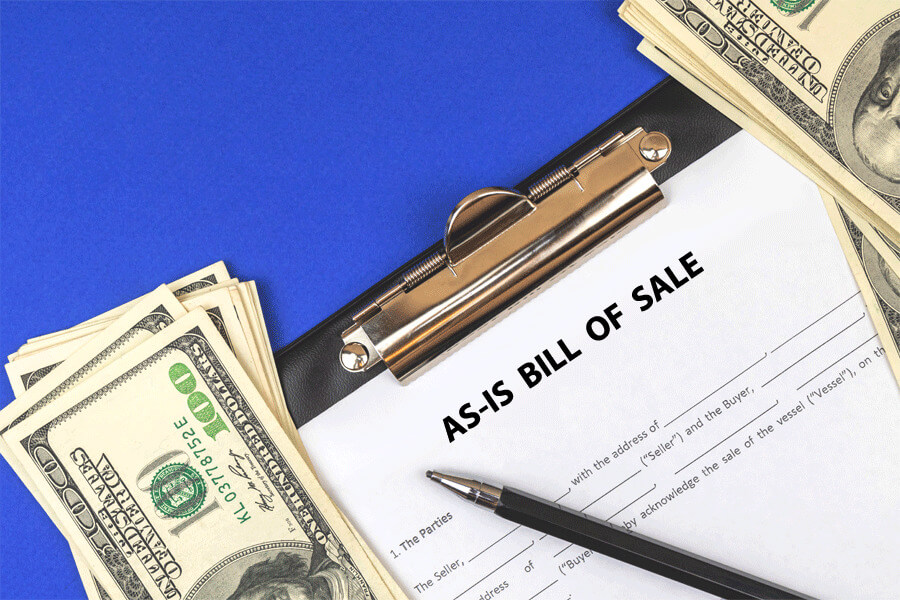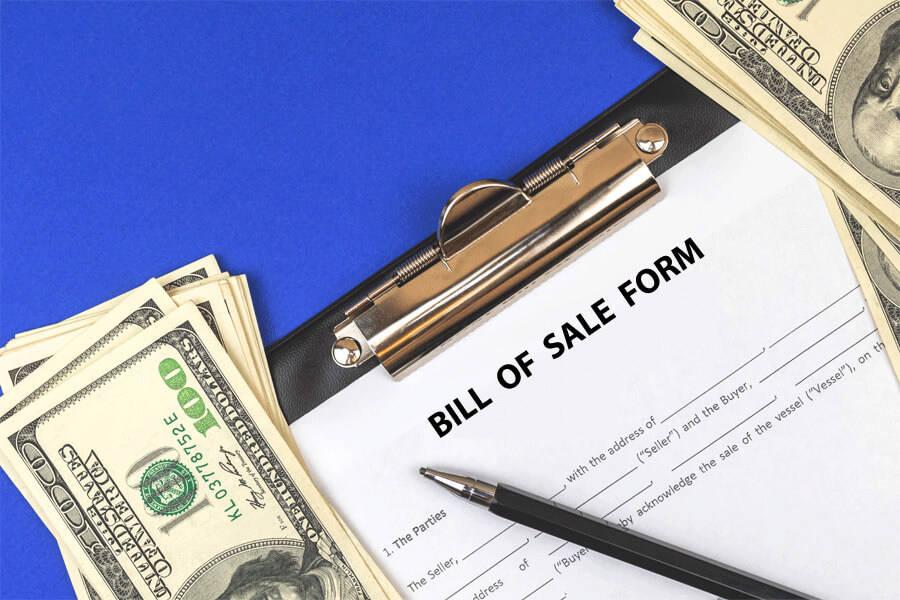A trailer bill of sale is a form that is used to show evidence of the selling of a trailer. It records the ownership change from a seller (old owner) to a buyer (new owner).
A trailer can be described as any non-motorized structure that is pulled or towed by another vehicle. One can use a trailer to transport things like boats, vehicles, equipment or be used for storage for different items.
After signing the form, the transfer of the trailer from the seller to the buyer, and receiving of money by the seller, the trailer sale becomes legal, and the procedure completes. As a seller, if the trailer is being sold alongside other items like a motor, then the record of the wholesaler can be recorded on a single form too.
The seller (old owner) requires the bill of sale to protect themselves from any future mishaps like fraud allegations and liability risks. This might include discussions surrounding the trailer’s condition or even the trailer’s ownership.
Free Templates
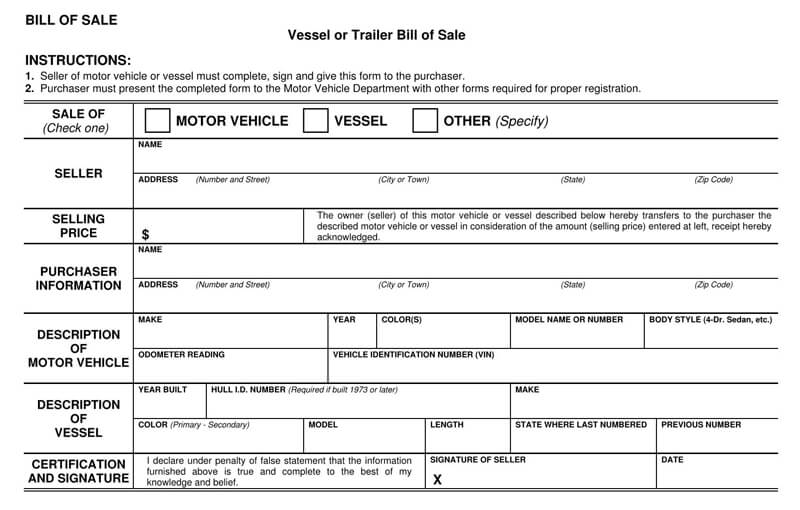
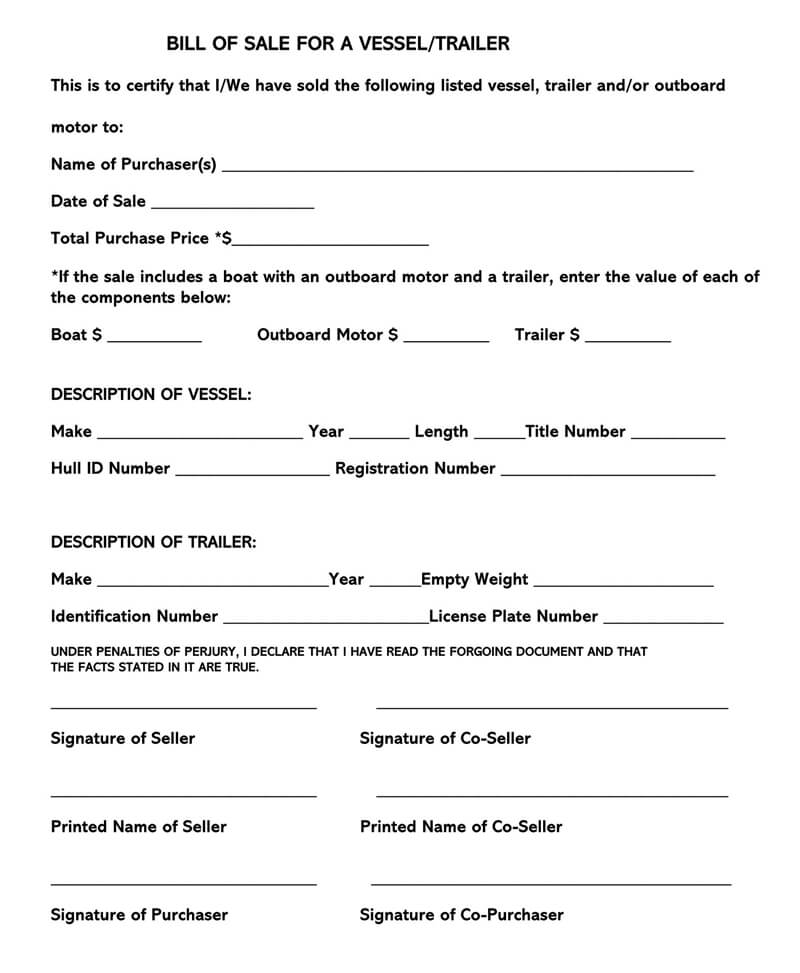
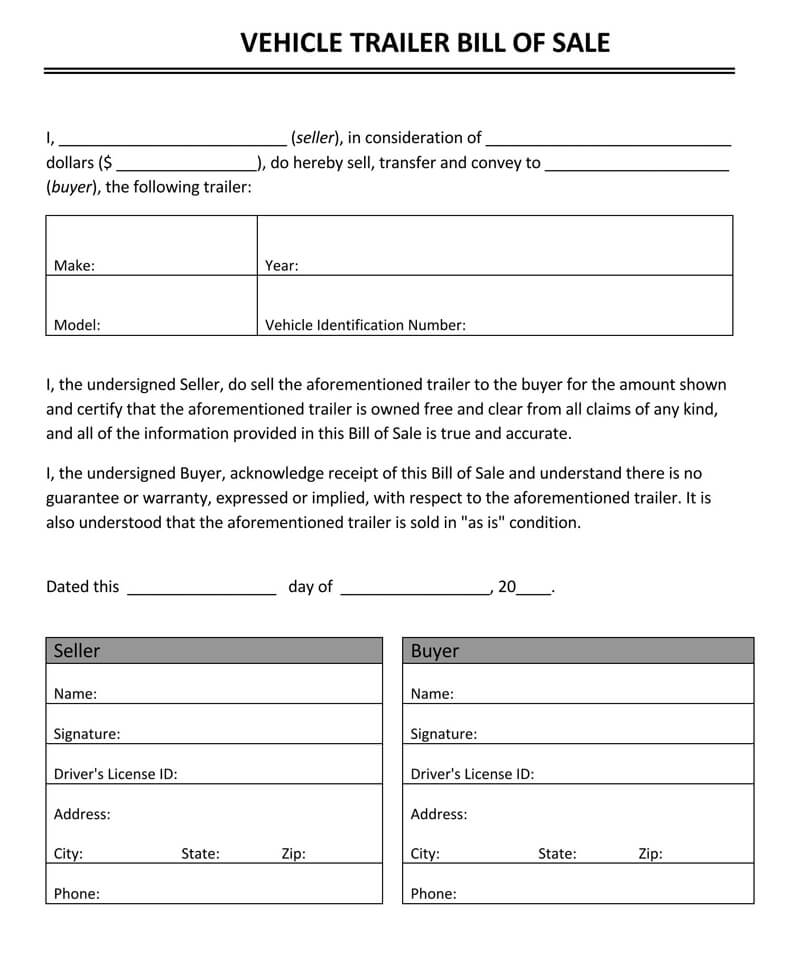
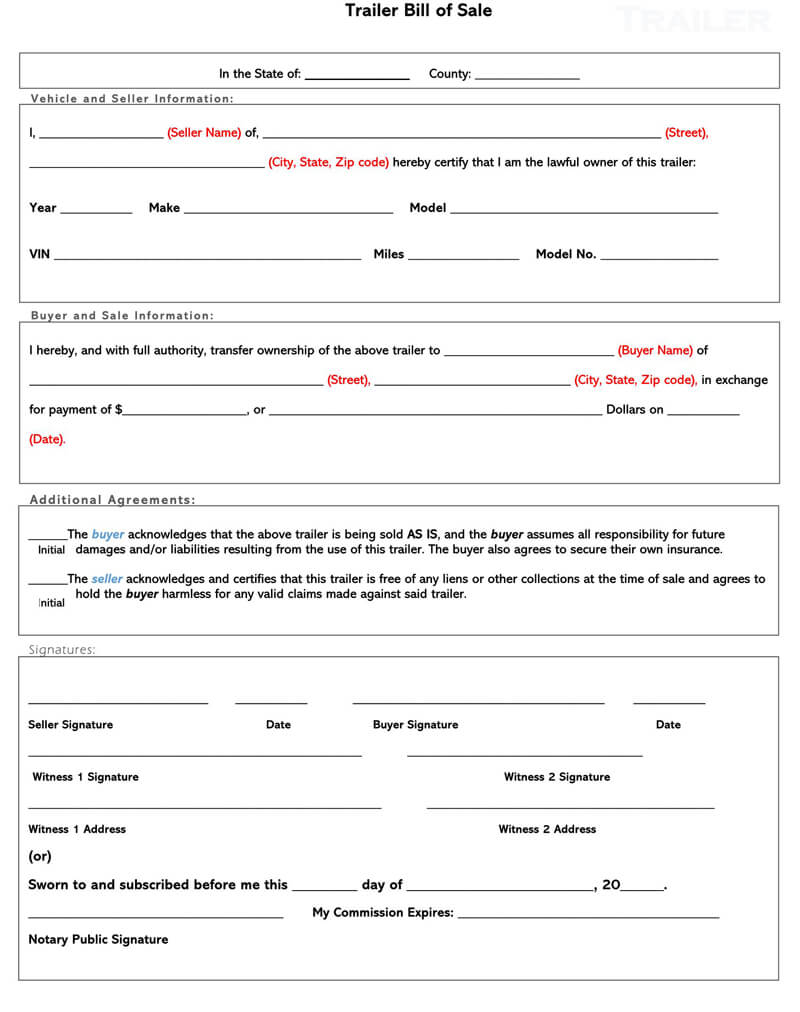
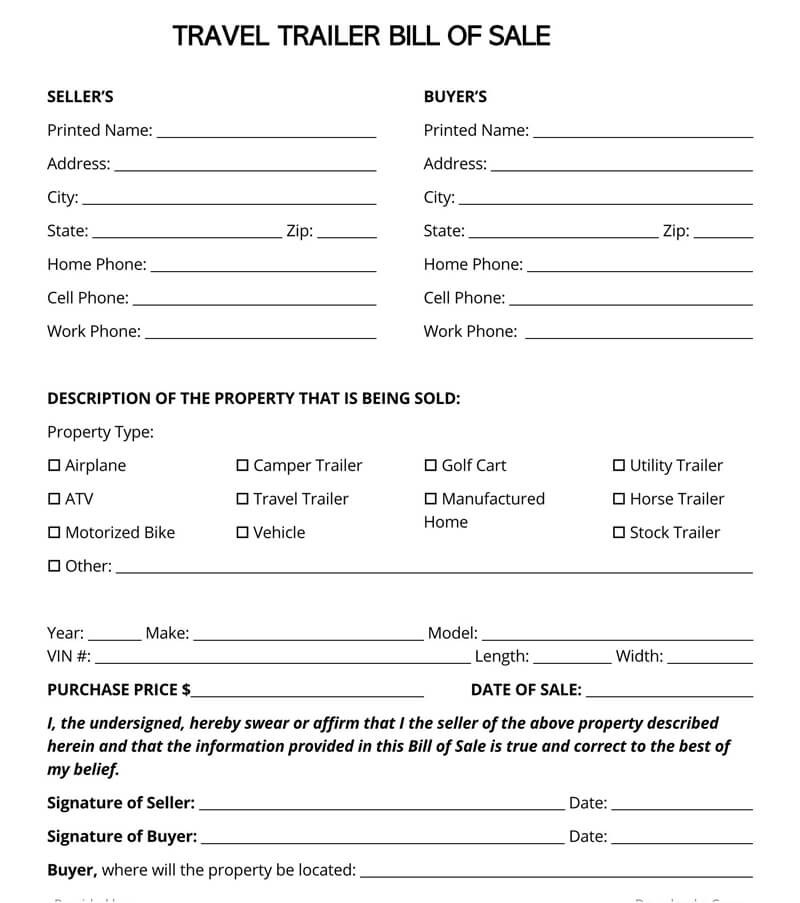
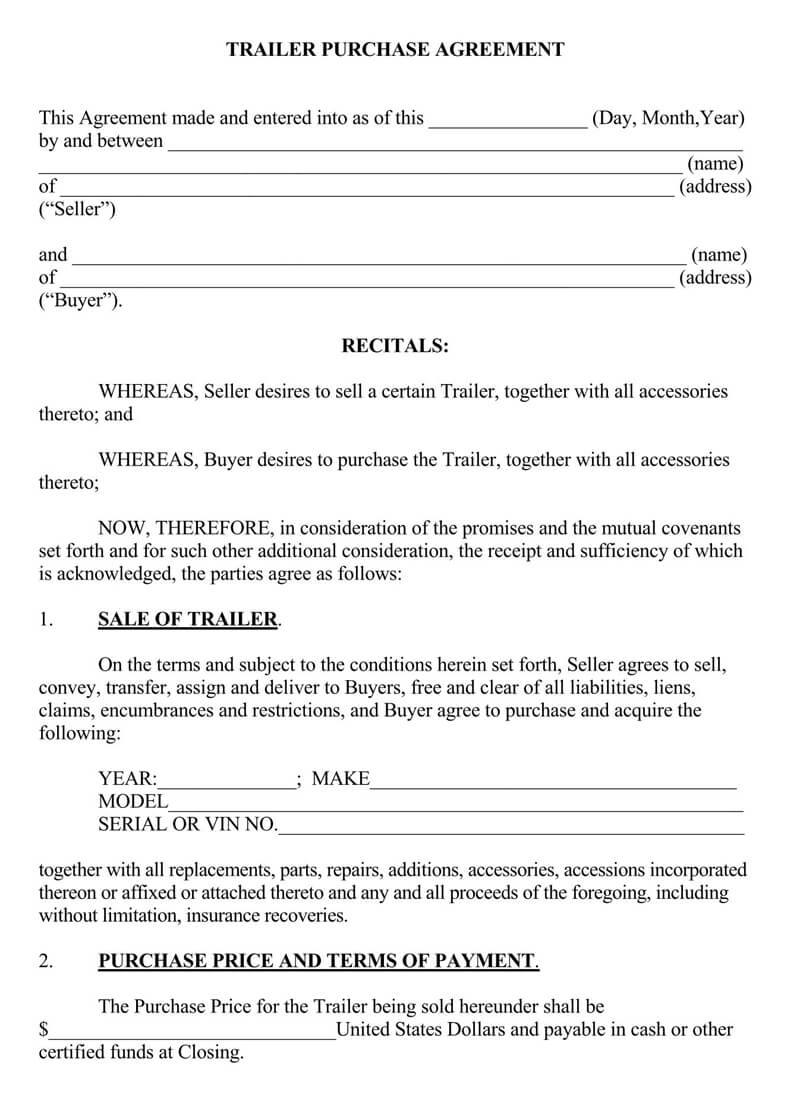

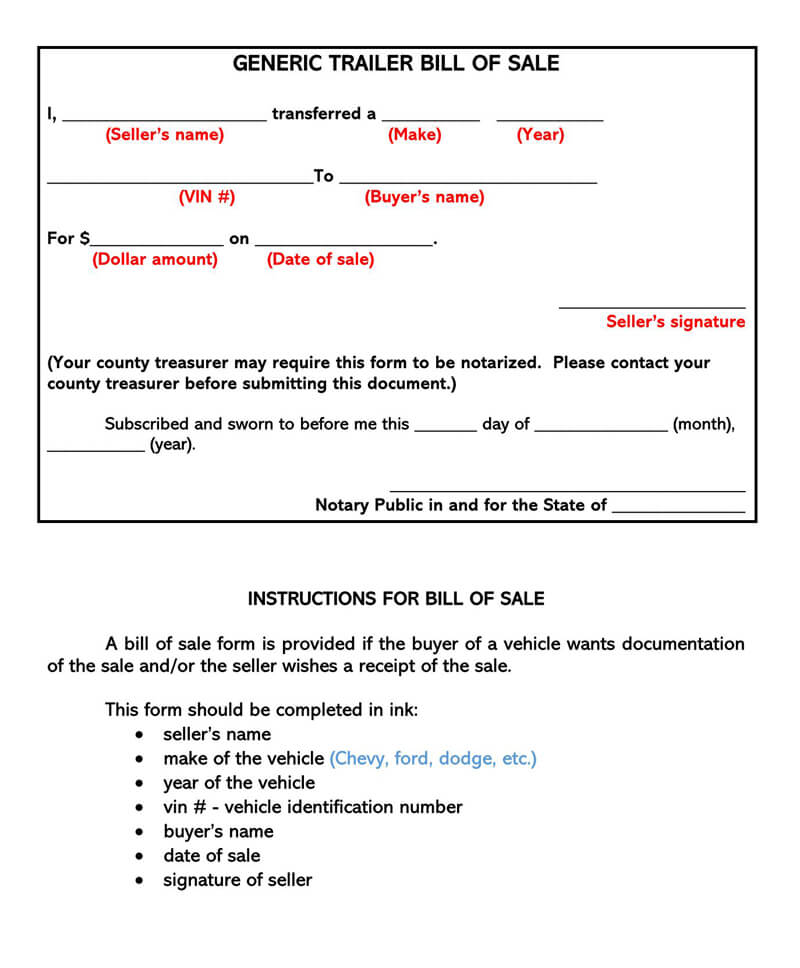

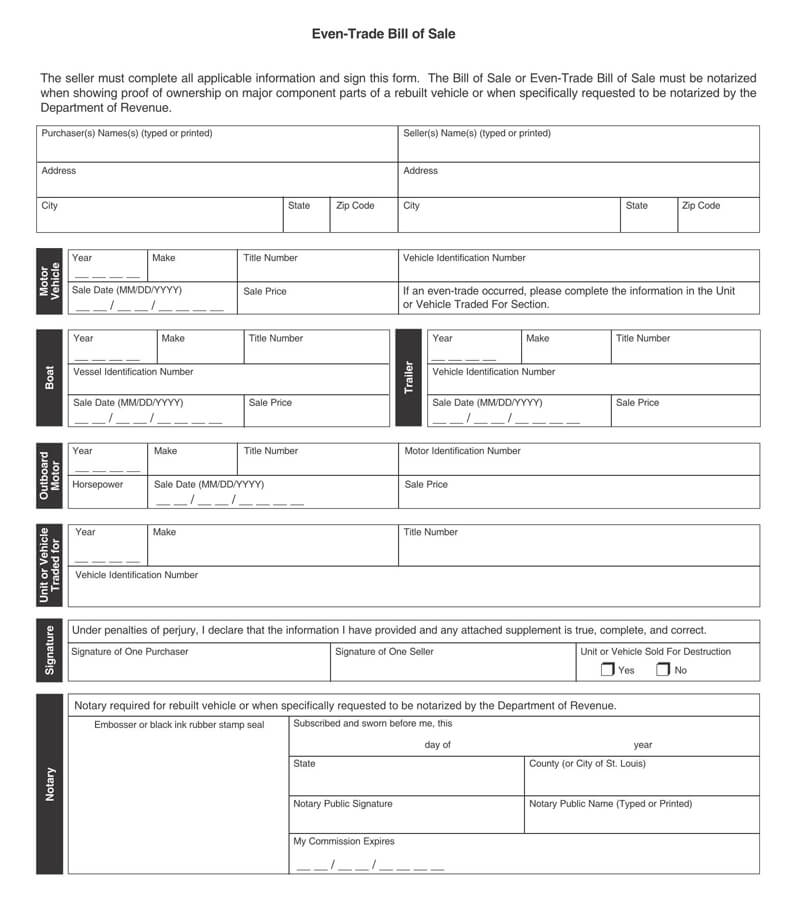
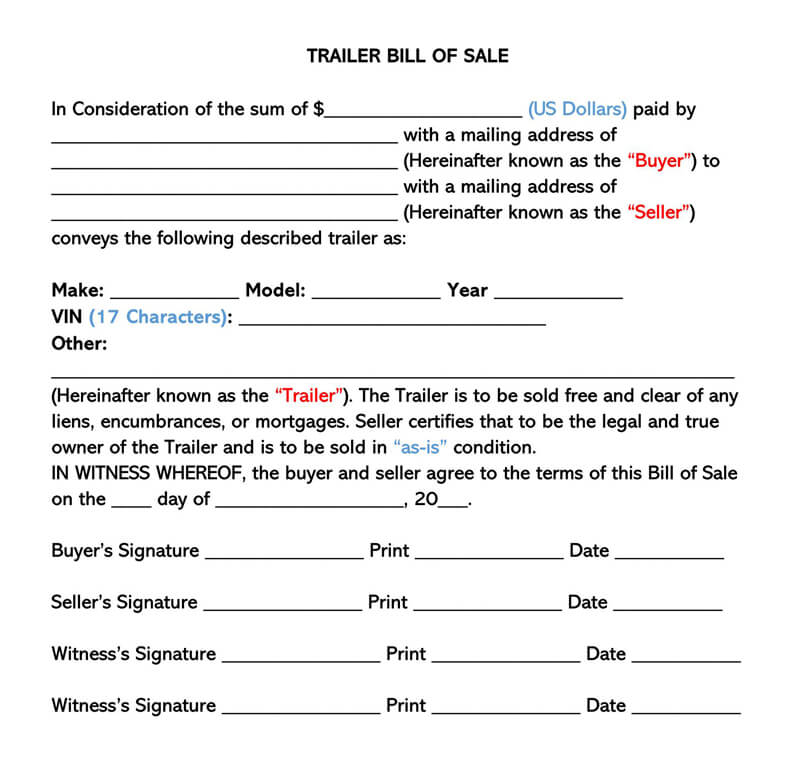
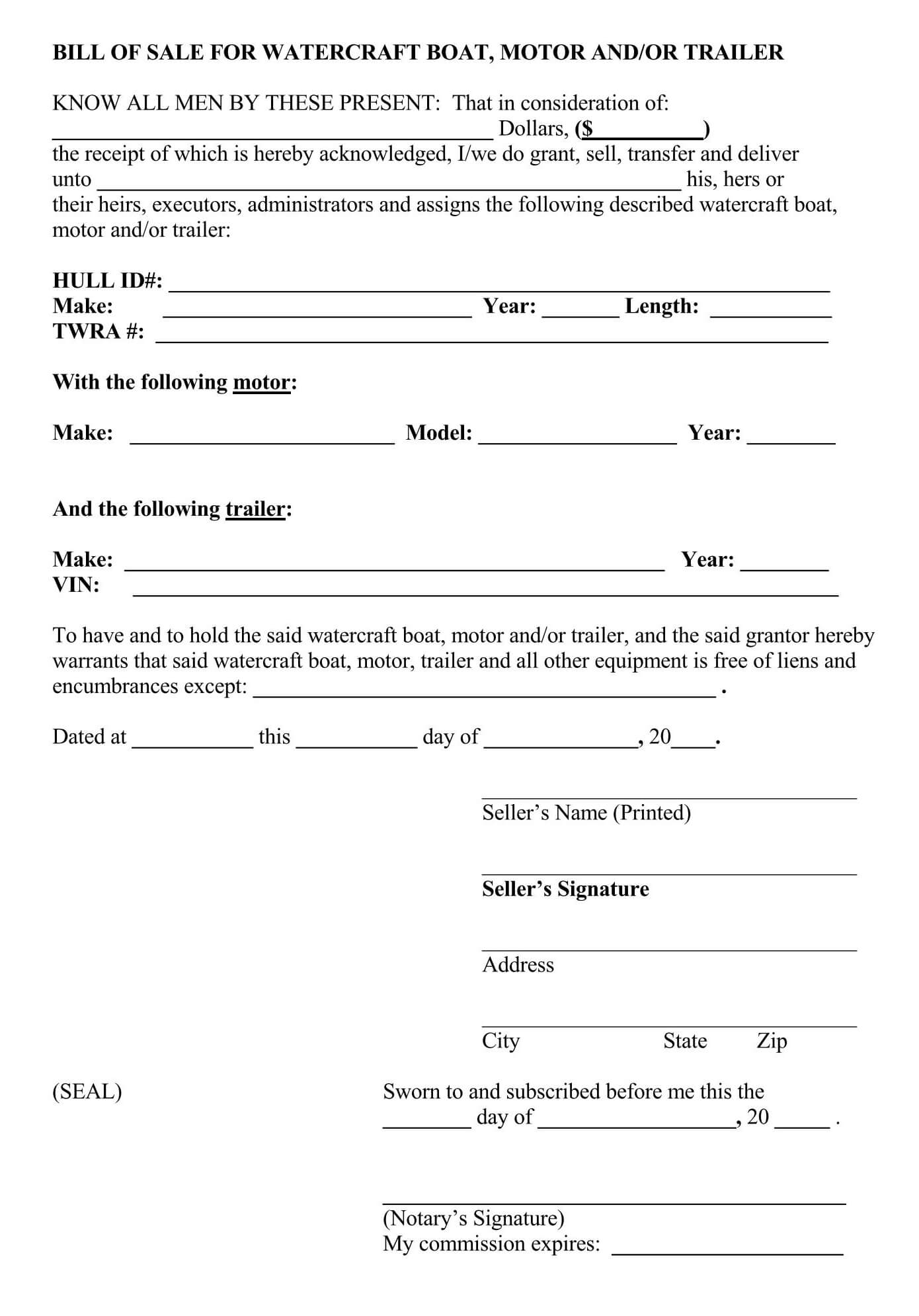
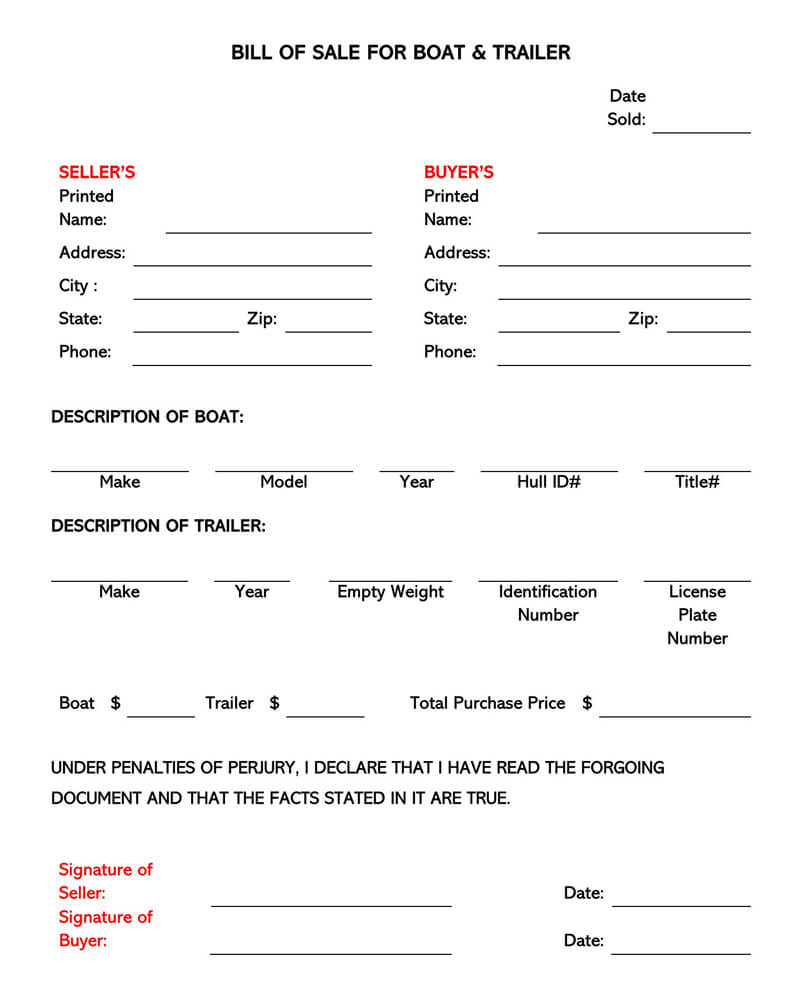
Writing a Trailer Bill of Sale
Now that the seller has understood the main importance of having the bill of sale when selling their trailer, there is a need to know how to write one. Here is a guide on how to write the bill of sale:
Collect information
The seller must gather all the required information concerning the sale of the trailer as part of preparing to write the bill of sale. In case there is any other item being sold together with the trailer, then its information should also be collected.
The information to be collected includes:
- Purchase price of the trailer
- Purchase date of the trailer
- Detailed description of the trailer
- VIN (vehicle identification number) – this is a seventeen-digit number that is usually found on the outside of a trailer.
- The make of the trailer
- The model of the trailer
- Number of wheels
Check state requirements
As the seller, it is important to check with the state’s DMV website in order to confirm the type of requirements that must be upheld when it comes to making a trailer sale. A seller can also call or even visit their local DMV office to inquire more about the requirements surrounding the sale.
For instance, in Texas, the state might require the seller to have the trailer inspected by the buyer for safety purposes, specifically when it is empty and especially if it weighs over 7,500 pounds. Other states might need the form signed in the presence of a notary public or adult witnesses.
Fill the form
After the two stages, then the seller is ready to fill in the form. Here are the important subsections that should be completed in the form:
Price agreements and parties
For this step, the seller should fill in the price consideration amount in US dollars. Also, the seller should include the name and mailing address plus the buyer’s details.

Trailer description
A trailer description may include its make, VIN, model, and other necessary information that is needed regarding the trailer.

Date and signatures
After both parties, that is the buyer and the seller of the trailer have agreed to all the terms in the bill of sale, then they should sign it and should mention the date on which it has been made. The date should be written using the format mm/dd/yyyy. Also two witnesses must include the signatures to make the bill of sale valid and complete.

Notarization
Notarization of the bill of sale is a requirement in most states. Either a witness or notary signatures are needed to validate it. It is important that a third party is present during the signing of the document to avoid any future disputes concerning the trailer sale. The notary public should also include their seal at the end.

File with the DMV
After successfully filling in the form, it is a requirement that the form is filed with the state’s DMV. The state where the sale of the trailer happened determines the filing process. Filing with the state’s DMV ensures proper registration of the trailer and guarantees that the buyer can now access the licenses.
Some states need the buyer and the seller to both file the bill of sale with the DMV. In this case, both the buyer and the seller should have a copy of the form.
Process of Selling a Trailer
Following are some useful tips while selling a trailer:
Identify the type of trailer
Knowing every detail of the trailer you are selling is important for pricing purposes. This knowledge also helps build confidence with the buyer and prevent any liability when details in the bill of sale do not match the trailer itself.
Prices of trailers vary depending on the type of trailer for sale. Trailers can be broadly categorized into four groups; Hauling trailers which include kayaks, boats, flatbed trailers, enclosed trailers that can be refrigerated, and vehicle carrying trailers. Prices can range from hundreds to thousands of dollars.
Establish the trailer’s worth
The type, size, and shape of the trailer will often determine the trailer’s selling price rather than the manufacturer. As a rule of thumb, it makes sense first to check your trailer over-under local listings in your area before settling for a price, this way you won’t underprice or overpriced your trailer.
List it for sale
It is advisable to give your trailer a good touch-up before listing it for purchase so that you can get the most cash from your sale. A good makeover will also ensure your trailers look good for the web. Listing your trailer online will expand your customer base and put you in direct contact with prospective buyers
Meet prospective customers and negotiate the price
Agree to meet with prospective clients in a quiet place to negotiate the final price. Ensure the clients you deal with are genuine and understand the basics of operating a trailer. It is also not a bad idea to ask what they intend to do with the trailer and whether they can match the stipulated price.
Once both of you agree on a reasonable price, the next step is to prepare a thorough and comprehensive bill of sale. Include all the information written above and follow the steps to make it.
Forward these details to the state for approval before allowing the trailer on the road. Remember that approval times and regulations vary from state to state.
In conclusion, selling a trailer should not be a hassle. With these few tips and the right bill of sale form, you could sell your trailer in a heartbeat.
Conclusion
A trailer bill of sale is an essential part of selling a trailer. It acts as a record or evidence of the sale transactions and ownership transfer of the trailer. This official document is essential for both the buyer and the seller. The buyer needs it for registration and proof of ownership purposes. For the seller, it is essential to have this bill of sale to protect him/herself from any future mishaps.







